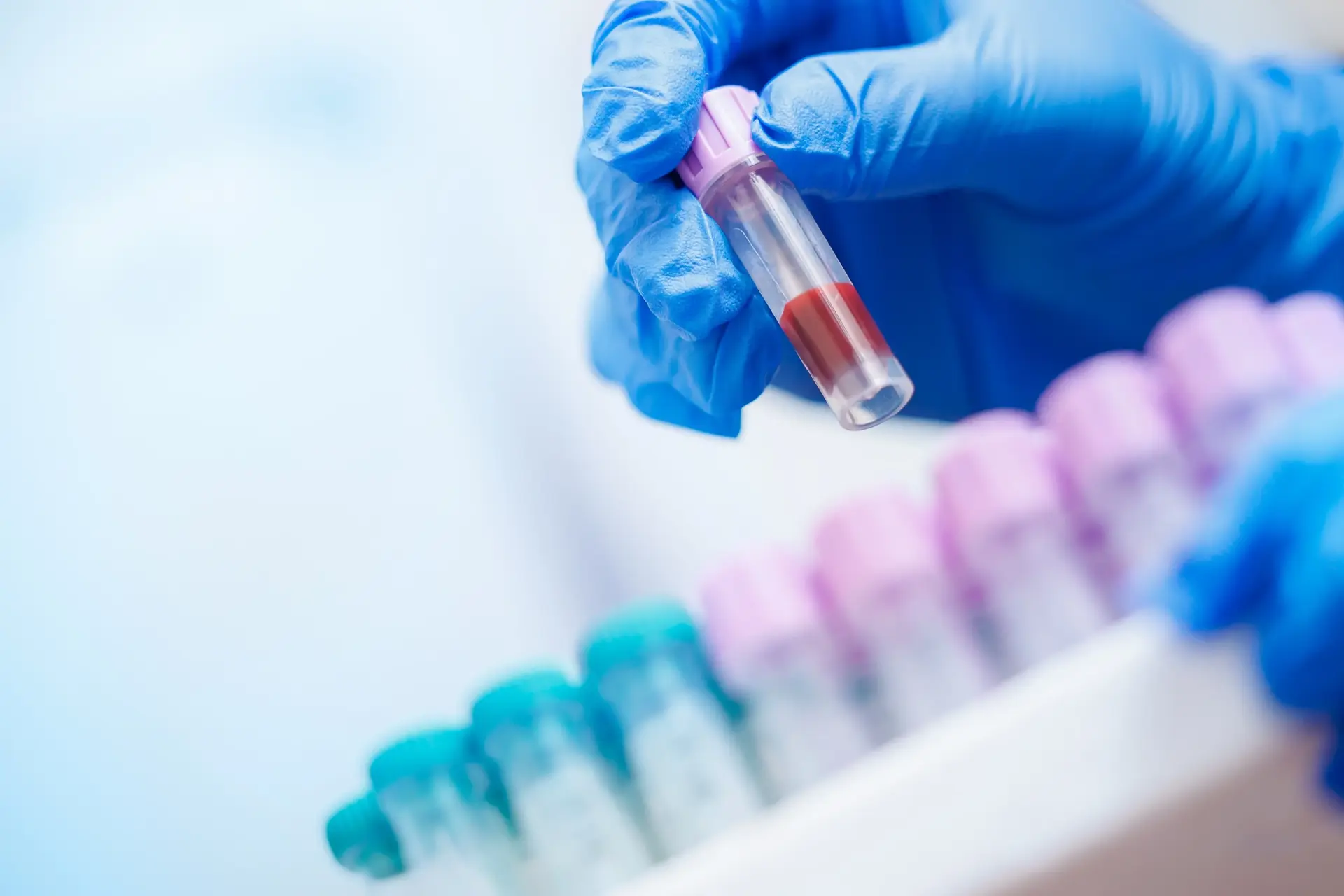What Are Biomarkers? Understanding Your Body’s Data
In this article, you’ll discover what biomarkers are and how they provide a window into your body’s inner workings. Learn how biomarker analysis supports early detection, personalized care, and long-term wellness through the power of data-driven insights.•
- Defines biomarkers and explains their role in precision medicine.
- Breaks down the three main types: diagnostic, prognostic, and predictive biomarkers.
- Shares real-world examples of biomarkers used in modern healthcare.
- Explains what biomarker data is and how it guides treatment decisions.
- Highlights how tracking your biological markers over time helps optimize health, prevent disease, and improve overall performance.
In today’s age of precision medicine, understanding how your body functions on a biological level is more accessible than ever. At the heart of this personalized approach to health are biomarkers — powerful tools that translate your body’s inner workings into measurable data.
But what are biomarkers, really? How do they help you make informed health decisions? And why are they essential in predicting, diagnosing, and preventing disease?
Let’s explore how biomarker analysis can help you understand your body’s data and move toward a healthier, more informed future.

What Are Biomarkers?
In the simplest terms, a biomarker (short for biological marker) is a measurable indicator of what’s happening inside your body. These markers can be found in your blood, urine, saliva, or other tissues, and they provide valuable insights into your physiological state.
Biomarkers can tell you whether your immune system is fighting inflammation, your hormones are balanced, or your metabolism is functioning efficiently. They can also help identify early warning signs of disease—long before symptoms appear.
In biomarkers in medicine, these data points guide doctors in understanding not only what’s wrong but also how to intervene effectively. For patients, they offer a deeper look at how lifestyle, nutrition, and stress influence overall wellness.
In short, biomarkers act as your body’s dashboard lights—showing what’s functioning smoothly and where something might need attention.
Types of Biomarkers and Their Role in Medicine
Not all biomarkers serve the same purpose. In clinical and research settings, scientists and physicians typically categorize them into three main types: diagnostic biomarkers, prognostic biomarkers, and predictive biomarkers.
1. Diagnostic Biomarkers
Diagnostic biomarkers help identify the presence of a disease or condition. For example, elevated blood sugar (glucose) is a diagnostic biomarker for diabetes, and increased troponin levels can signal a heart attack.
By using these biological signals, doctors can confirm or rule out specific health issues with greater accuracy and speed than relying on symptoms alone.
2. Prognostic Biomarkers
Prognostic biomarkers indicate how a disease might progress over time. For example, tumor markers in certain cancers can show how aggressive a condition is or how likely it is to return after treatment.
These biomarkers give clinicians and patients a glimpse into the future, helping guide long-term monitoring and treatment decisions.
3. Predictive Biomarkers
Predictive biomarkers show how your body is likely to respond to a specific therapy or medication. In oncology, for example, genetic markers can determine whether a patient will benefit from targeted drug therapy.
Predictive biomarkers are essential in the era of precision medicine, where treatments are tailored to individual biology rather than one-size-fits-all protocols.
Together, these three categories—diagnostic, prognostic, and predictive—make up the foundation of biomarkers in medicine, allowing clinicians to personalize care with greater confidence and accuracy.
Examples of Biomarkers
You’ve likely encountered examples of biomarkers without realizing it. Routine biomarker analysis already plays a role in annual checkups and standard blood panels. Here are a few common examples:
- Cholesterol and triglycerides: Biomarkers for cardiovascular health.
- Blood glucose and HbA1c: Indicators of metabolic function and diabetes risk.
- C-reactive protein (CRP): A marker of inflammation and immune response.
- Hormone levels (testosterone, estrogen, cortisol): Reflect endocrine system balance.
- Vitamin D and B12: Reveal nutritional and absorption status.
- Creatinine and BUN: Measure kidney function.
- Liver enzymes (ALT, AST): Indicate detoxification and liver health.
These markers, when viewed together, paint a complete picture of how your body’s systems are performing. Tracking changes over time allows for proactive intervention before issues become serious.
What Is Biomarker Data—and Why It Matters
So, what is biomarker data exactly? It’s the measurable information collected from your biomarker analysis, often expressed as numerical values. Each number corresponds to a biological function—like how efficiently your liver detoxifies or how well your heart manages cholesterol.
When compiled, this biomarker data forms a detailed map of your body’s current state. More importantly, it helps detect subtle changes that could indicate emerging health conditions long before you feel symptoms.
For example:
- Rising inflammatory markers might suggest your body is under stress.
- Declining hormone levels might explain fatigue or mood changes.
- Shifts in glucose regulation might reveal early metabolic dysfunction.
This data-driven approach transforms healthcare from reactive to proactive. Instead of waiting until something goes wrong, you can use biomarker data to make targeted adjustments that improve energy, longevity, and resilience.
The Science Behind Biomarker Analysis
Biomarker analysis involves collecting biological samples—most often blood—and using laboratory technology to measure specific molecules. Modern diagnostic tools can evaluate hundreds of biomarkers simultaneously, generating a complete snapshot of your health.
For example, EverSpan Life’s biomarker testing examines more than 100 vital biomarkers, covering everything from metabolic and cardiovascular function to hormone balance and nutritional health. Each value is compared against optimal ranges to highlight areas that may need improvement.
Once analyzed, results are reviewed by clinicians who interpret what the data means for your body and your goals. This combination of science and personalized insight forms the foundation of precision medicine—an approach that uses biomarker-driven data to tailor care to each individual’s biology.
Biomarkers in the Era of Precision Medicine
Precision medicine is redefining how we think about healthcare. Instead of general recommendations, this model relies on your biological markers to craft personalized strategies.
For instance, someone with elevated inflammation markers may benefit from anti-inflammatory nutrition, lifestyle adjustments, and targeted supplementation—while another person with hormone imbalances might require a completely different plan.
By grounding every decision in biomarker analysis, functional and integrative medicine practitioners can create treatment plans that work with your body, not against it. This data-based personalization is what makes biomarkers in medicine so powerful.
In short, biomarker data empowers both patients and clinicians to move beyond guessing toward genuine understanding—and measurable progress.
Taking Charge of Your Health
The future of healthcare is not just about treating disease—it’s about understanding your biology. Through biomarkers and biomarker analysis, you gain insight into how your body functions and how you can optimize it for longevity and performance.
At EverSpan Life, we believe that your biological markers tell a story—and the more you know, the better equipped you are to write the next chapter. Whether you’re looking to detect early risks, improve existing conditions, or simply enhance vitality, biomarkers in medicine provide the clarity and confidence you need to take control.
Your health data is more than numbers—it’s a roadmap to your potential. By embracing precision medicine and the power of biomarker analysis, you can move from reactive care to proactive wellness—one insight at a time.
Want to translate your biomarker data into meaningful action? Contact us to schedule a consultation, and let us help you put your health metrics to work for your optimal wellness.










